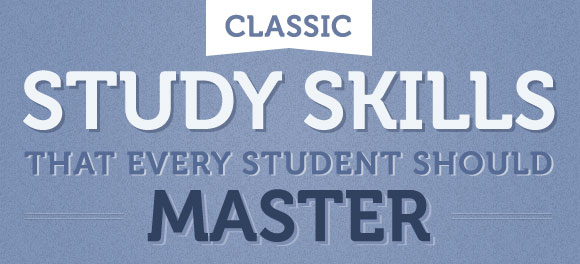
Whether you’re enrolled in a traditional high school or an online high school, there are some universal study skills that can help you make the most of your classes. Here are the top study skills that can help you prepare for exams and remember what you learned!
Learning to read is a life-long process. Aside from reading for pleasure, readers read for different purposes. Effective reading helps the student to understand written language and constructively process the meaning of the text. Parsing the language and the reading topic influences how well students communicate with one another and the world at large.
Effective reading involves:
Read more: 30 Apps Every High School Student Needs
Memorization is a study skill that will follow a student throughout their academic career and beyond. There are several different memorization methods that can work for different subjects or different learning types. The most common memorization techniques include:
Read more: The Ultimate Guide to Earning Your Online High School Diploma
Although online high school programs are offered – well, online, your child should continue and master the practice of note taking. Taking notes can be tricky. If a student picks up only high-level information, he may not easily remember the material upon review. If he takes copious notes with no direction or form, the result could be the same as if he took too few notes. Successful note takers do the following:
For example, before diving into the next chapter in your textbook, skim through the contents, introduction, and conclusion to get a gist of what you're about to learn.
Glancing over the illustrations, charts, and summaries in the upcoming chapters of your books or study materials give you a brief overview of the topic before you begin reading in detail.
When you're studying, pay close attention to headings and words in boldface, as these will help you understand key terms.
For example, when studying for your literature class, you might realize the headings 'Metaphors' and 'Similes' are highlighted in bold. Because they're in bold, you can know that these are important concepts you need to grasp.
Try to reword the ideas you're learning into concepts that make more sense to you. For example, if you're in economics class, you might be able to better understand the concept of "supply and demand" by reworking it into apples and customers at your local grocery store.
If you have any images, graphs, or tables in your study materials, make sure you pay close attention! They can provide you with valuable context and additional information.
Read more: A Day in the Life of a High School
Online high school programs require testing at various phases during the course of each lesson and class. Mastering test taking is amongst the most fundamental skills your child will utilize during his academic career. Testing is how a student will qualify and quantify what he has learned and retained. Especially if your child has aspirations of attending University, in which case practicing quality testing skills is excellent preparation for college entrance exams such as the SAT and ACT.
In order to be best prepared for tests, students should:
Read more: How to Get a High School Diploma as an Adult
Learning without walls is a unique experience for many, and it requires a level of self-discipline that is not expected in the traditional classroom. For students in on-campus environments, each day is structured by lesson plans; bells to start the day, begin and dismiss class, signal lunch period and end the day. This systematic structure ensures that students manage their time within the confines of their day.
While online high school programs offer flexibility, time management and organization are as indispensable as these skills would be in an on-campus environment. To make sure students can study and learn effectively, it’s important they:
Besides being beneficial in online school, developing these time management and organizational skills can be helpful post-graduation in work and in life!
Read more: Online High School Grad’s Advice for Juggling Family, Work, and School
Call 1-800-349-6861 to speak with an admissions representative today or enroll your child online now!